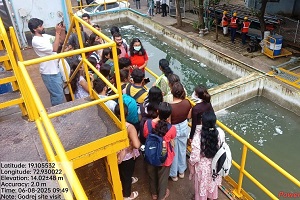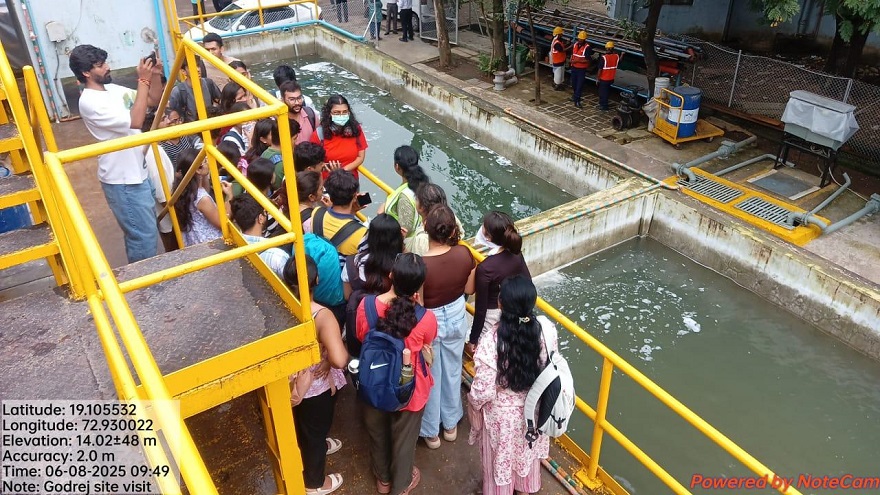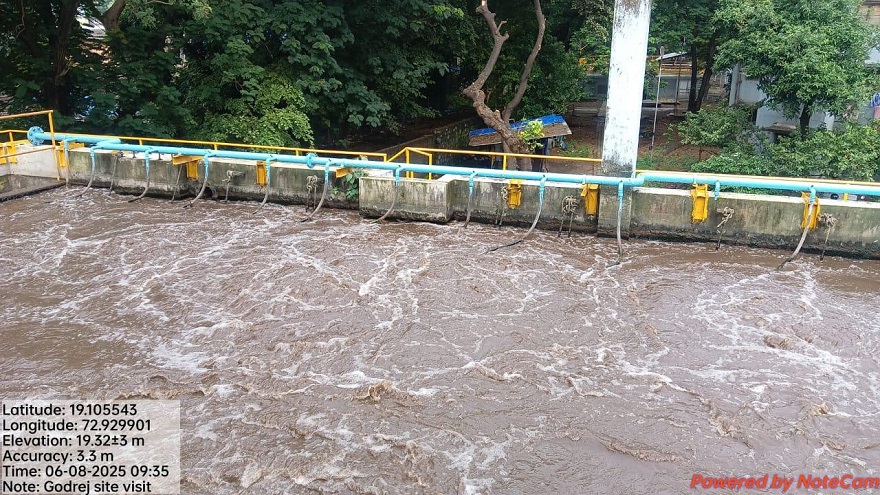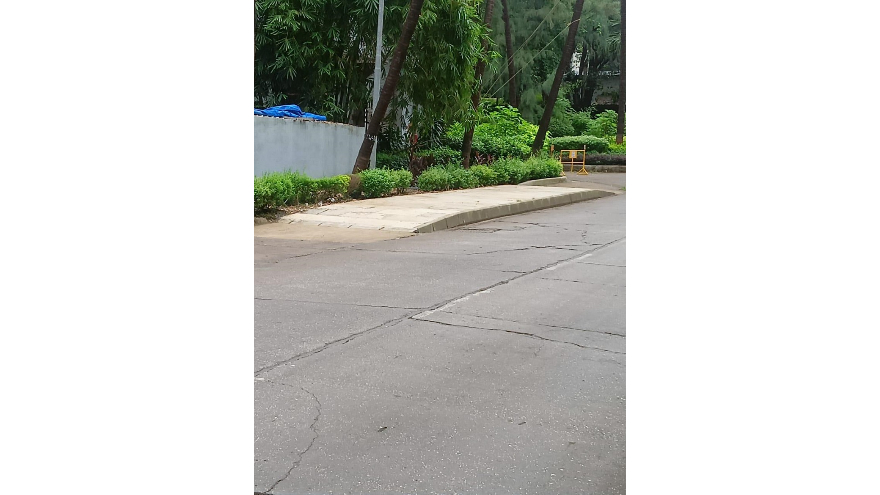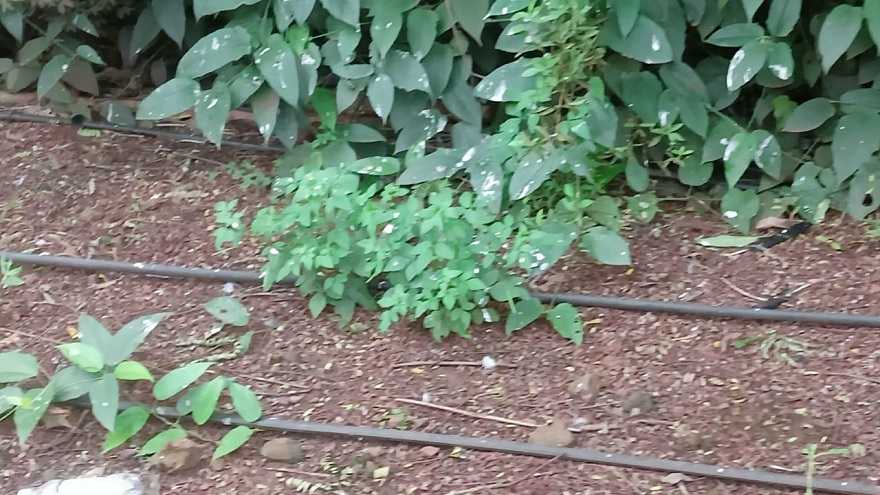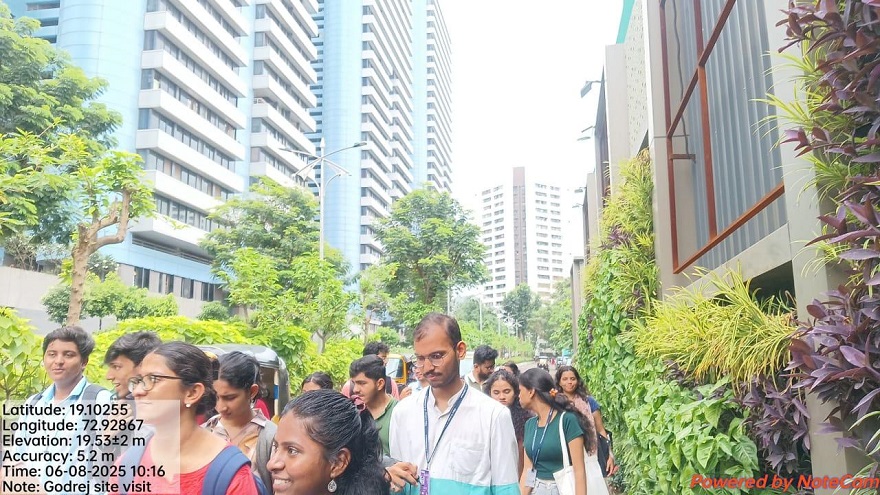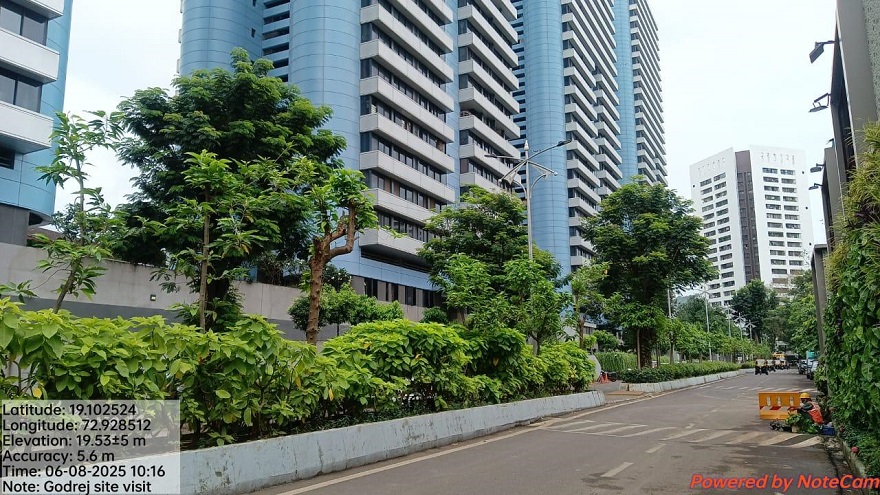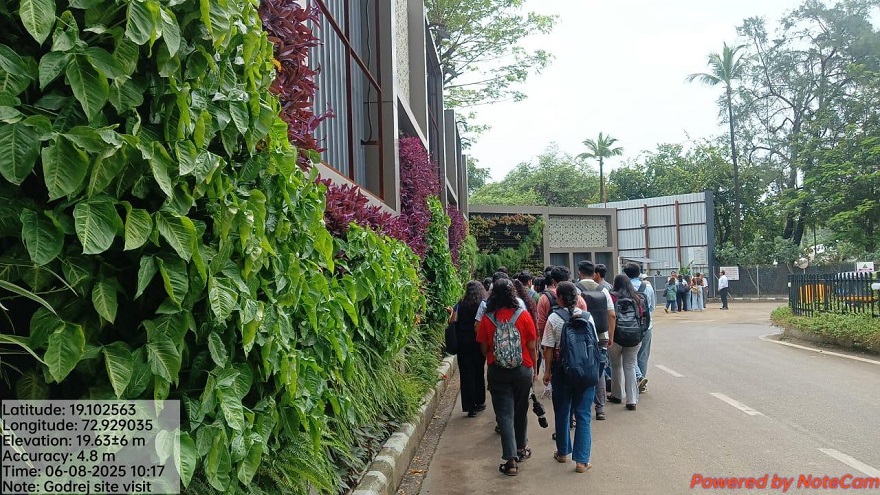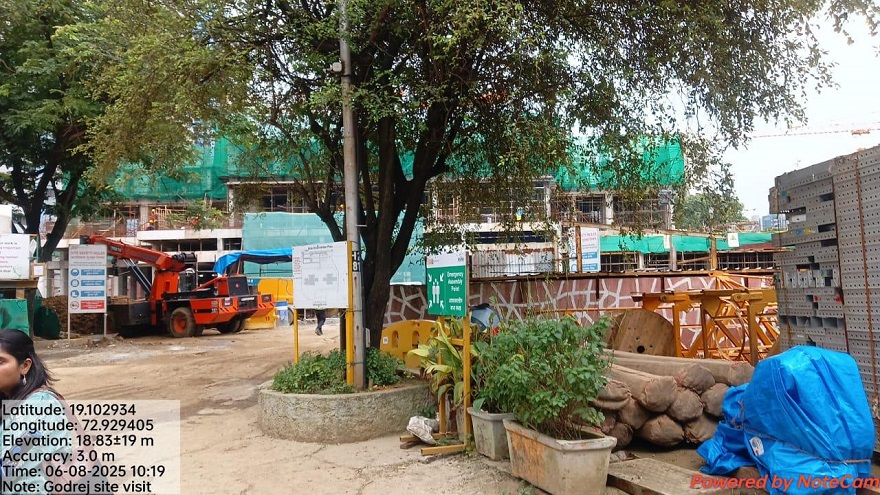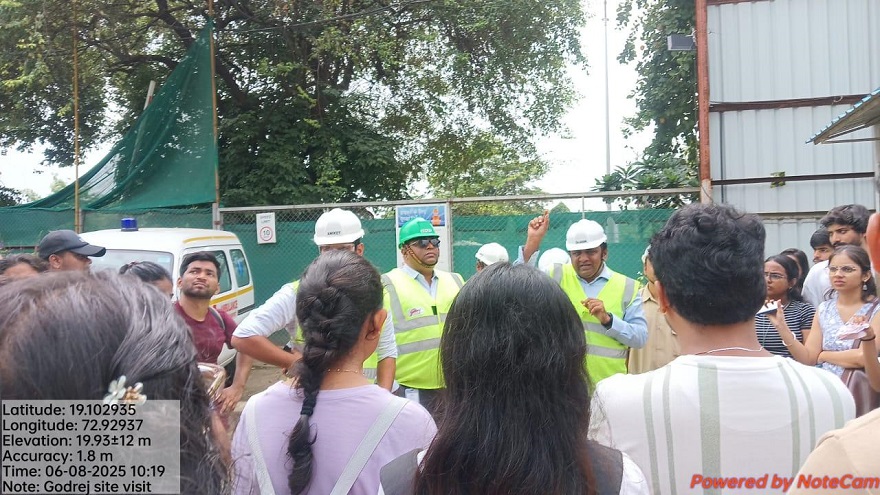| Year | Final Year |
| Session | 2025-26 |
| Date | 6th August 2025 |
| Time | 8:30 a.m. - 12:30 p.m. |
| Faculty Co-ordinator | Prof. Sarojini Lohot |
| Consultant Coordinating | Mr. Sudarshan Handge |
| No. of Students Participants | 45 |
The aim of the site visit was to provide Final year students with practical exposure to sustainable development practices within a large-scale residential and commercial development.
Objectives
To observe sustainable design strategies adopted in IGBC Platinum-rated buildings.
To understand on-site sustainable construction practices in an ongoing commercial complex.
To relate theoretical knowledge of environmental architecture with practical implementation on site.
Visit to the Waste Water Treatment Plant (WWTP)
Students were divided into two batches for detailed explanation. Environmental department instructors explained the treatment process stage by stage. Students observed how wastewater is filtered, aerated, and treated to make it reusable for landscaping, flushing, and other non-potable purposes. Students asked their doubts , how much time is required for treatment , and the placement of the tank.
Observation of Platinum-rated Residential Buildings
Students explored the IGBC Platinum-rated buildings within the Godrej Vikhroli campus.
Focus was on sustainable site planning, landscaping, water conservation, and energy-efficient building features.
The surrounding campus planning was observed in terms of green cover, circulation, and user comfort.
Visit to Ongoing Commercial Complex Construction Site
Site Supervisors explained sustainable construction practices such as:
- Dust and Pollution Control: Water spray systems installed at entry points and during loading/unloading.
- Material Management: Pre-decided plans for material stacking and organized storage.
- Safety Measures: Helmets, safety belts, barricades, and signage to ensure worker safety.
- Waste Management: Broken bricks and other reusable waste incorporated in construction.
- Material used for construction the bricks used were made from recycled building waste.
- Students understood the integration of sustainable strategies right from the construction stage.
After the visit the students were served with snacks.
Outcomes of the Visit
- The students developed an understanding of the interdisciplinary coordination required between architecture, services, and site management teams.
- The visit sensitized students towards responsible design and execution practices, highlighting the architect’s role in achieving sustainability goals.

